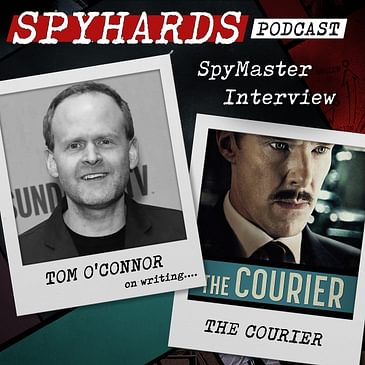Agents Scott and Cam welcome screenwriter Tom O'Connor to the show to reveal the secrets behind writing the 2020 espionage drama The Courier. He also shares his favourite spy films of all time.
Become a SpyHards Patron and gain access to top secret "Agents in the Field" bonus episodes, movie commentaries and more!
Social media: @spyhards
Purchase the latest exclusive SpyHards merch at Redbubble.
View the NOC List and the Disavowed List at Letterboxd.com/spyhards
Podcast artwork by Hannah Hughes.
Theme music by Doug Astley.



